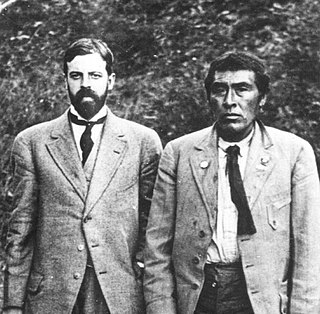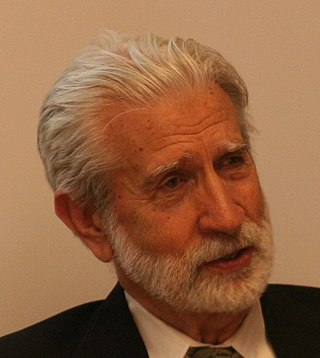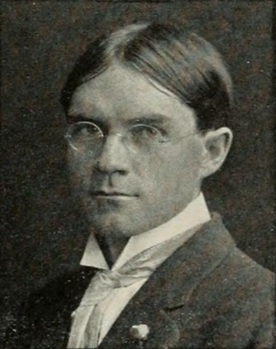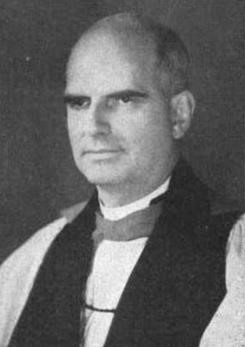
The California State University is a public university system in California. With 23 campuses and eight off-campus centers enrolling 485,550 students with 55,909 faculty and staff, CSU is the largest public university system in the United States. It is one of three public higher education systems in the state, with the other two being the University of California system and the California Community Colleges. The CSU system is incorporated as The Trustees of the California State University. The CSU system headquarters is located in Long Beach, California.
The Walter A. Haas School of Business, also known as Berkeley Haas, is the business school of the University of California, Berkeley, a public research university in Berkeley, California. It was the first business school at a public university in the United States and is ranked among the best business schools in the world by The Economist, Financial Times, QS World University Rankings, U.S. News & World Report, and Bloomberg Businessweek.

Alfred Louis Kroeber was an American cultural anthropologist. He received his PhD under Franz Boas at Columbia University in 1901, the first doctorate in anthropology awarded by Columbia. He was also the first professor appointed to the Department of Anthropology at the University of California, Berkeley. He played an integral role in the early days of its Museum of Anthropology, where he served as director from 1909 through 1947. Kroeber provided detailed information about Ishi, the last surviving member of the Yahi people, whom he studied over a period of years. He was the father of the acclaimed novelist, poet, and writer of short stories Ursula K. Le Guin.
The UCLA School of Education and Information Studies is one of the academic and professional schools at the University of California, Los Angeles. Located in Los Angeles, California, the school combines two distinguished departments whose research and doctoral training programs are committed to expanding the range of knowledge in education, information science, and associated disciplines. Established in 1881, the school is the oldest unit at UCLA, having been founded as a normal school prior to the establishment of the university. It was incorporated into the University of California in 1919.
Candidate of Philosophy can refer to the US degree or status of Candidate in Philosophy granted to Ph.D. students who have been accepted as candidates for that degree, or to degrees or former degrees at bachelor's or master's level from some Scandinavian countries.
Seyla Benhabib is a Turkish-American philosopher. Benhabib is a senior research scholar and adjunct professor of law at Columbia Law School. She is also an affiliate faculty member in the Columbia University Department of Philosophy and a senior fellow at the Columbia Center for Contemporary Critical Thought. She was a scholar in residence at the Law School from 2018 to 2019 and was also the James S. Carpentier Visiting Professor of Law in spring 2019. She was the Eugene Mayer Professor of Political Science and Philosophy at Yale University from 2001 to 2020. She was director of the program in Ethics, Politics, and Economics from 2002 to 2008. Benhabib is well known for her work in political philosophy, which draws on critical theory and feminist political theory. She has written extensively on the philosophers Hannah Arendt and Jürgen Habermas, as well as on the topic of human migration. She is the author of numerous books, and has received several prestigious awards and lectureships in recognition of her work.

Barry Stroud was a Canadian philosopher and professor at the University of California, Berkeley. Known especially for his work on philosophical skepticism, he wrote about David Hume, Ludwig Wittgenstein, the metaphysics of color, and many other topics.
Nevitt Sanford was an American professor of psychology at the University of California at Berkeley and later at Stanford University. A Harvard doctoral student of Gordon Allport, PhD in social psychology and Henry Murray, MD at the Harvard Clinic, as a young Cal professor Sanford studied ethnocentrism and antisemitism, and was the senior author along with Columbia University philosopher Theodor Adorno of The Authoritarian Personality, also known as "the Berkeley Study."
David Pierpont Gardner was the 15th president of the University of California and was also the president of the University of Utah.

Lewis R. Lancaster is Emeritus Professor of the Department of East Asian Languages at the University of California, Berkeley, USA, and has served as President, Adjunct Professor, and Chair of the dissertation committee at University of the West since 1992. He graduated from Roanoke College (B.A.) in 1954 and received an Honorary Doctorate of Letters from Roanoke in 2007. He is also a 1958 graduate of USC-ST (M.Th.) and a 1968 graduate of the University of Wisconsin (Ph.D.). He received an Honorary Doctorate of Buddhist Studies from Vietnam Buddhist University in 2011.

Ernest Carroll Moore (1871–1955) was an American educator. He co-founded the University of California, Southern Branch, in Los Angeles, California.
Edward William Strong was the Chancellor of the University of California at Berkeley between 1961 and 1965. He resigned in March 1965, in large part due to his actions during the Free Speech Movement, which was beginning at that time. Besides his role as chancellor, Strong founded UC Berkeley's Department of Sociology and Social Institutions in 1946, chaired it until 1953, as well as in another of other campus roles.
Richard Zach is a Canadian logician, philosopher of mathematics, and historian of logic and analytic philosophy. He is currently Professor of Philosophy at the University of Calgary.
Archer Taylor was one of America's "foremost specialists in American and European folklore", with a special interest in cultural history, literature, proverbs, riddles and bibliography.

Loye Holmes Miller, was an American paleontologist and zoologist who served as professor of zoology at the University of California, Los Angeles, University of California, Berkeley, and University of California, Davis.

William Bertrand Stevens was second bishop of the Episcopal Diocese of Los Angeles, serving from 1928 to 1947. He had previously served as coadjutor bishop from 1920 to 1928. He was a member of Phi Beta Kappa, Sons of the American Revolution, the Society of Colonial Wars, the Society of the Descendants of the Colonial Clergy, Phi Gamma Delta, Pi Epsilon Theta, Theta Phi, Phi Mu Alpha, the University Club in Pasadena, the Los Angeles Athletic Club, the Jonathan Club, Knights Templar, Red Cross of Constantine, Masons, and Sons of the Revolution.
Llewellyn Michael Kraus Boelter was an American engineer, Professor of Mechanical Engineering at the University of California, Los Angeles, and founding Dean of its UCLA Henry Samueli School of Engineering and Applied Science.
Howard Aaron Gillman is an American political science scholar and academic administrator, currently serving as the 6th chancellor of the University of California, Irvine since September 2014.







